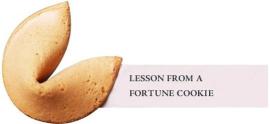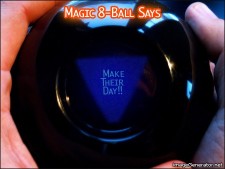A recent study of over 800 respondents found that our youngest workers and those new to the workforce expect more feedback than other workers.
Santa Cruz, California (Press Release) October 1, 2008
Both those who have been in the workforce 4 years or less and those who are 25 and younger strongly prefer frequent feedback according to a recent study completed by Cindy Ventrice the author of Make Their Day! Employee Recognition That Works.
On a scale of 1-5, with 5.0 most preferred, those 25 and under rate weekly feedback a 3.7 and those employed four years or less rate it a 3.6, while overall respondents rate the importance of weekly feedback a 3.4.
According to Ms. Ventrice, “When it comes to weekly feedback, it is important to note that there is virtually no difference between the preferences of young workers and those who are new to the workforce but entering at an older age.”
|
|
25 and under |
Employed 4 yrs or less |
Overall |
|
Provides weekly feedback that helps me improve my performance. |
3.7 |
3.6 |
3.4 |
|
Provides daily encouragement. |
3.6 |
3.3 |
3.0 |
The survey also looks at the preference for daily encouragement. Those 25 and younger have a more pronounced need for this frequent encouragement than other newer workers and more so than the overall which rates it a 3.0.
Ventrice recommends managers and supervisors meet this need for frequent feedback by offering occasional corrective feedback and generous amounts of praise. “Don’t keep employees guessing,” she says, “Let them know they are on track, and they will reward you with increased enthusiasm.”
About the author:
Cindy Ventrice is the author of the best-selling book Make Their Day! Employee Recognition That Works and the companion guide Recognition Strategies that Work. She has been quoted in The New York Times, Harvard Business Update, Workforce Magazine and on CNBC. She has worked with managers in 14 countries and has helped hundreds of organizations improve employee morale and loyalty through effective recognition strategies.
Cindy Ventrice
831-476-4224
###
To order your copy of the complete research report: Order
The press can contact Cindy Ventrice for a copy of the report.
 For most of us, changing behavior is an uneven process. It’s two steps forward. One step back.
For most of us, changing behavior is an uneven process. It’s two steps forward. One step back. Crack open a fortune cookie and you get a fortune that’s nearly always true. Yet you will rarely find the message interesting.
Crack open a fortune cookie and you get a fortune that’s nearly always true. Yet you will rarely find the message interesting. In a survey conducted earlier this year, I looked at what makes recognition meaningful. There are four elements to recognition: Praise, Opportunity, Respect, and Thanks. Since the publication of
In a survey conducted earlier this year, I looked at what makes recognition meaningful. There are four elements to recognition: Praise, Opportunity, Respect, and Thanks. Since the publication of  My name is Cindy Ventrice. I am the author of the best-selling book Make Their Day! Employee Recognition That Works and the companion guide Recognition Strategies That Work.
My name is Cindy Ventrice. I am the author of the best-selling book Make Their Day! Employee Recognition That Works and the companion guide Recognition Strategies That Work.